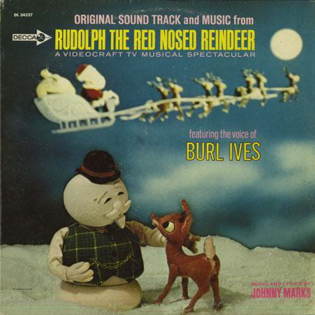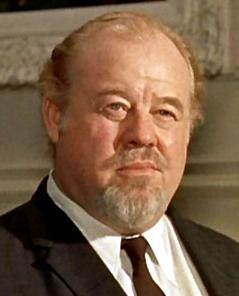The term American folk music encompasses numerous music genres, variously known as traditional music, traditional folk music, contemporary folk music, or roots music. Many traditional songs have been sung within the same family or folk group for generations, and sometimes trace back to such origins as Great Britain, Europe, or Africa. Musician Mike Seeger once famously commented that the definition of American folk music is "...all the music that fits between the cracks."
"All Alone" is a popular waltz ballad composed by Irving Berlin in 1924. It was interpolated into the Broadway show The Music Box Revue of 1924 where it was sung by Grace Moore and Oscar Shaw. Moore sat at one end of the stage under a tightly focused spotlight, singing it into a telephone, while Oscar Shaw sat at the other, doing the same.
"Dream", sometimes referred to as "Dream ", is a jazz and pop standard with words and music written by Johnny Mercer in 1944. He originally wrote it as a theme for his radio program. It has been and performed by many artists, with the most popular versions of this song recorded by The Pied Pipers, Frank Sinatra, and Roy Orbison.
"The Sweet Trinity", also known as "The Golden Vanity" or "The Golden Willow Tree", is Child Ballad 286. The first surviving version, about 1635, was "Sir Walter Raleigh Sailing In The Lowlands ".

Scouting Along with Burl Ives is a 1964 album, subtitled The Official Boy Scout Album. Ives was commissioned by the Boy Scouts of America to make this album, which is now available on CD at ScoutStuff.org. Ives is accompanied by a choir of boys and an orchestra directed by Sid Bass. Greg Adams of Allmusic writes, "Scouting Along With Burl Ives is essentially a work-for-hire children's album made for the Boy Scouts and is therefore of limited appeal, but the professionalism and enthusiasm Ives and Bass exhibit are admirable." The album features folk and other songs that might be sung around a campfire. The album is unique in that it also provided a short bio of Ives and his early affiliation with professional football.
The Wayfaring Stranger may refer to:

Originally released in August 1941 on Okeh Records, Okeh Presents the Wayfaring Stranger is an album consisting of four 10-inch records by Burl Ives. This set marked Ives's debut as a recording artist. He accompanies himself on the guitar as he sings twelve folk songs.

Walt Disney Presents Burl Ives' Animal Folk is one of several albums for children by the folk singer Burl Ives.

Australian Folk Songs is a 1958 album by Burl Ives. During his visit to Australia in 1952, invited there by the Australia Broadcasting Commission, Ives met the Reverend Percy Jones, a professor of music at the University of Melbourne. The two men compiled a book of Australian folk songs and Ives recorded an album, "collected and arranged" by Jones, which were later released in the United States and elsewhere as Australian Folk Songs.
This article contains a list of albums by Nat King Cole and compilations of his recordings, together with a list of his chart singles.
"They Call the Wind Maria" is an American popular song with lyrics written by Alan J. Lerner and music by Frederick Loewe for their 1951 Broadway musical, Paint Your Wagon, which is set in the California Gold Rush. Rufus Smith originally sang the song on Broadway, and Joseph Leader was the original singer in London's West End. It quickly became a runaway hit, and during the Korean War, the song was among the "popular music listened to by the troops". Vaughn Monroe and his Orchestra recorded the song in 1951, and it was among the "popular hit singles at the record stores" that year. It has since become a standard, performed by many notable singers across several genres of popular music. A striking feature of the song in the original orchestration, is a driving, staccato rhythm, played on the string instruments, that evokes a sense of restless motion.

Burl Ives Sings Little White Duck and Other Children’s Favorites is a 12-inch LP album of folk songs for children recorded by Burl Ives for Columbia Records between 1949 and 1951. The label, in 1950, crafted a "shared" 10-inch children's LP. On side one, Hollywood actor Victor Jory narrated Tubby the Tuba, while side two featured Burl Ives performing seven tunes under the title Animal Fair: Songs for Children. The catalog number was JL 8103. One year earlier, Animal Fair: Songs for Children had been presented separately on a two-disc 78-rpm set, using as a catalog number MJV 59. In 1956, another Ives endeavor for children appeared, containing "The Little White Duck" and six other ditties. Part of Columbia's brief (1955–56) House Party Series of 10-inch LPs, the album was called Children's Favorites, affixed with the catalog number CL 2570. Next, a new collection, expanded to 12 inches, combining these 14 Ives selections and 2 additional ones and entitled Burl Ives Sings Songs for All Ages, was issued by Columbia in 1957, bearing CL 980 as the catalog number. Two years later, this album was shortened by two tracks, christened with its final title, Burl Ives Sings Little White Duck and Other Children's Favorites, and reassigned to Columbia's budget label, Harmony Records, which employed HL 9507 as the catalog number. Being the customary practice in the vinyl marketplace of the 60s, this monaural platter wound up electronically enhanced for stereo, circa 1963, and given the modified catalog number HS 14507. Columbia, in 1974, reissued the LP, again in simulated stereo, with the catalog number C 33183. At the same time, the label also transferred the album to cassette tape, affixing the catalog number CT 33183. On November 22, 1988, Columbia unveiled the album in CD format, which upgraded the sound quality to digital stereo. Distribution of the disc then was taken over by Sony Wonder on October 3, 1995. The 1974 LP cover, later retained for the CD, was designed by Ed Lee and Eloise Smith, with illustrations by Reynolds Ruffin. Currently, the CD is out of print, but it still can be purchased through online music sellers. Moreover, all the album tracks are now available via MP3 downloading.
Susan Catherine Reed was an American singer, harpist, zitherist and actress. A regular on the New York folk scene, Life magazine dubbed her "the pet of Manhattan nightclubbers" in 1945.
Evolution Records was a record label operated by the Stereo Dimension Records subsidiary of the Longines Symphonette Society, a unit of the Longines watch company. It was founded in 1969 as the retail arm of the mail-order Longines Symphonette Society which usually issued box sets of old radio shows, including a two-record set of Orson Welles's 1938 Mercury Theatre on the Air production of "The War of the Worlds", or traditional pop songs. Loren Becker was the president of the label. In 1973 the label made a concerted effort to break into the soul music genre.
I Love a Piano is a popular song with words and music by Irving Berlin. It was copyrighted on December 9, 1920 and introduced in the Broadway musical revue Stop! Look! Listen! when it was performed by Harry Fox and the ensemble. The song was given a tremendous boost in the show as the set for it consisted of an enormous keyboard running completely across the stage. In front of this were six pianos with six pianists playing the tune. Irving Berlin always regarded the song as one of his best efforts.

Rudolph the Red-Nosed Reindeer is a soundtrack album to the 1964 Rankin/Bass television special of the same name. The original cast recordings from the TV special are supplemented with instrumental versions recorded by the Decca Concert Orchestra. All songs used in the television special were written by Johnny Marks.
"Cool Water" is a song written in 1936 by Bob Nolan. It is about a man and his mule, Dan, and a mirage in the desert. Members of the Western Writers of America chose it as No. 3 on the Top 100 Western songs of all time.











